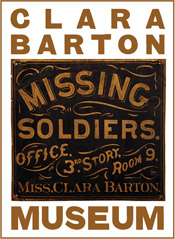Friends – Honorable Charles Mason

Charles Mason was born in Pompey, New York, the six of seven children. He entered the U.S. Military Academy in 1825, finishing first in his class, ahead of the legendary Robert E. Lee. After two years as Professor of Engineers at the Academy, Mason resigned and became an attorney. In 1836 Mason moved to Wisconsin Territory, married and acted as the governor’s aide and public prosecutor. Mason also farmed land outside of Burlington, now part of Iowa.
In 1838 Iowa became a territory and President Martin Van Buren named him chief justice of the Territorial Supreme Court. While serving, Mason wrote 166 of the territories 191 opinions. He became famous for not following precedents. Mason, at the direction of the territorial legislature, wrote a draft bill that became the territory’s criminal code. Although he was reappointed in 1842 and 1846, Mason resigned in 1847. In 1848 he argued for Iowa regarding a border dispute at the US Supreme Court and won.
In April 1853 President Franklin Pierce appointed Mason Commissioner of Patents. There he promoted agricultural research and office reform. Although retained by President James Buchanan, Mason left the Patent Office in 1857 after the Secretary of the Interior, Robert McClelland began to illegally interfere with Mason’s work including his hiring of Barton. Mason returned to Iowa but then moved back to Washington in 1862 to found a patent law firm, Mason, Fenwick and Lawrence.
Mason’s allegiance to the Democratic party caused him to lose a bid for governor of Iowa in 1861. He maintained in Richard Acton’sBiographical Dictionary of Iowa, Acton quotes Mason as saying “the Union, ‘can never be perpetuated by force of arms and that a republican government held together by the sword becomes a military Despotism.'” Acton also quoted Mason’s reaction to his political losses as that “‘ I played the game of life at a great crisis and lost. I must be satisfied.'”
After the Civil War Mason remained active in business in Burlington. He died there at age 77 in 1882. It is interesting to note that although Mason was a Peace Democrat, he hired Clara Barton despite her outspoken views supporting the Republic Party and their policies. He made her the first full-time female clerk paid the same rate as men. His willingness to hire her is a statement to the character of both people.
Additional Reading:
http://uipress.lib.uiowa.edu/bdi/DetailsPage.aspx?id=253
http://www.myoutbox.net/popch24.htm

